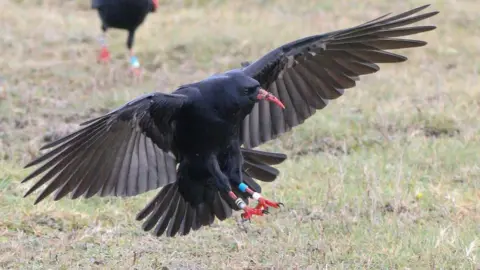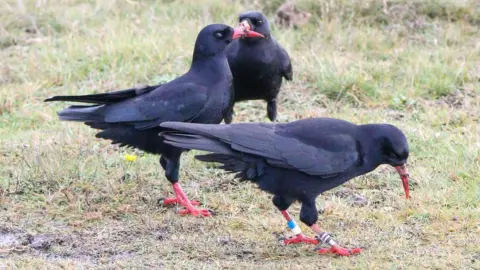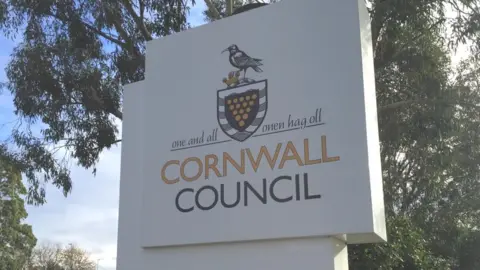Record number of Cornish choughs fledge
 Paul Ash
Paul AshA rare species of bird has fledged a record number of young in Cornwall.
The chough, which is a distinctive black bird with a red beak and legs, returned to Cornwall in 2001, after being absent for 28 years.
This year 66 choughlets have fledged, from 23 breeding pairs - the most since the species recolonised the county.
Jenny Parker from the RSPB said it was "absolutely brilliant, but we need to keep going".
She added: "It has taken decades of close partnership work to get Kernow's choughs back to this positive result between the RSPB, The National Trust, Natural England, The Cornwall Birdwatching Preservation
Society (CBWPS), along with a large number of volunteers, farmers and other landowners."
Three birds first arrived on the Lizard in west Cornwall in 2001 and a pair bred in 2002.
Choughs are now regularly spotted across different parts of west Cornwall and on the north coast.
This year some have crossed into Devon, although they have not successfully bred.
 Paul Ash
Paul AshIt is hoped a large proportion of the young birds will survive the winter months, and numbers will continue to increase each year.
Nicola Shanks, RSPB volunteer, added: "It has taken a while, but finally the tide has turned for chough in Kernow.
"With continued good land management and the protection of safe nest and roost spots, it will ensure their future here and their spread up the coast into Devon and beyond".

Kate Evans from The National Trust: "It's with thanks to the passionate volunteers who give their time and who are dedicated to monitoring choughs, that we are able to build a picture of this growing chough population".
Hilary Mitchell, CBWPS volunteer, said: "We couldn't do it without all the people that report their sightings to us, thanks to each and every one of them".
Allow X content?
Choughs often nest on cliffs and in mine workings, and like to forage in groups on short grassland near the coast.
Sightings this year include at Land's End, Newquay and Trevose Head near Padstow.
There are additional populations in Wales, Ireland and Brittany, and it is hoped the groups may join together in the future.
Anyone who spots a chough is encouraged to report the sighting to the CBWPS.
